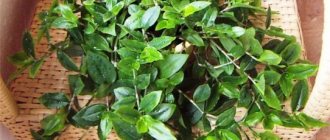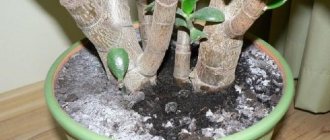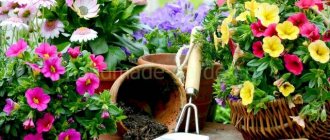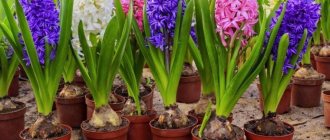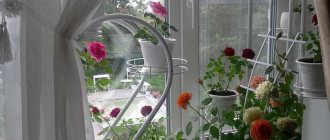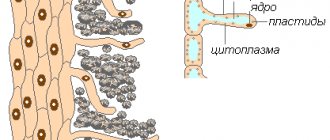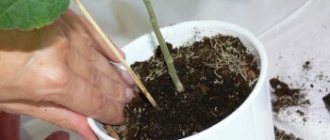Disinfection of toxic substances
Modern construction and finishing materials: plastic coatings, glue, varnishes, paints, synthetic resins, etc., emit a variety of toxic substances. Particularly dangerous are formaldehyde, benzene, phenol, xylene and trichlorethylene. The presence of these substances in the air can cause headaches, insomnia, palpitations, joint pain and nausea. Indoor plants can neutralize these chemicals. Plants such as chlorophytum, dracaena, sansevieria, ficus, chrysanthemum, aloe, azalea, scindapsus, gerbera, ivy, philodendron and spathiphyllum cope particularly successfully with this function.
The importance of indoor plants in human life
The importance of indoor plants in human life
Since ancient times, man has sought to decorate his home with plants. Interior gardening arose as an element of culture that meets its aesthetic needs. Man felt himself to be one with nature; he turned to it for healing, bringing a piece of living nature into his home. Hippocrates also recommended using plants in the form in which nature created them. With skillful selection, indoor plants complement the interior of an apartment well and create comfort, enlivening bare walls, relieving us of static and covering aggressive fields (wallpaper, lining, gratings). Beautifully flowering plants – primroses and begonias
,
fuchsias, azaleas
, etc. - in this case the eye can “jump” from flower to flower.
– Many plants are considered mascots against various diseases and can really influence our well-being and mood while in the room. But the main factor in the influence of the plant world on humans, as has now been established, is electromagnetic radiation. Every cell of living matter is a source of electromagnetic radiation. The human body is genetically programmed to constantly receive frequency “messages” from various plants. And since residents of many large cities, alas, do not breathe ozone, it begins to rebel. And this is expressed by the production of hormones, the increased concentration of which leads to a bad mood. It turns out that the more time we spend within four walls, the more often we are overcome by the blues. It is clear that neither a book nor a TV is capable of sending those same electromagnetic signals. Only the plants themselves can do this. It’s not without reason that doctors recommend that we spend more time outside the city and walk in the forest. But the rhythm of modern life is so intense that there is not enough time to follow their advice. So the situation is hopeless? Not at all. Previously, people knew nothing about biofields or hormones. But there were flowers in every city house .
Our ancestors intuitively felt that indoor flowers and plants are necessary for a person to maintain his health.
Geranium
is one of the most common indoor plants.
Its bright red flowers literally radiate vital energy and strength, which will help you in case of poor health. Therefore, during illness, keep geranium in your room. Blooming cyclamen
will help you get rid of nightmares and insomnia. Houseplants are not only excellent psychotherapists, but also ecologists, creating a favorable microclimate in our apartments. It is no secret that air humidity in rooms with central heating is much lower than normal. It is only 20-30% - like in a desert or semi-desert. And here a unique plant can come to the rescue, capable of turning the desert into an oasis.
This is Cyperus
.
It evaporates used moisture up to 80%. And the brothers of Cyperus are Dieffenbachia, anthuriums.
Many indoor plants have phytoncidal, that is, bactericidal properties. The “enemies” of bacteria include chlorophytum, myrtle, rosemary, citrus fruits, and modest aglonema.
In the room where they grow, the number of microbes in the air is reduced several times!
Moreover, aglonema
even kills streptococcal infections.
Asparagus
absorbs heavy metal particles.
There is no need to tell how bad a person feels in a stuffy room. Moreover, the point here is not a lack of oxygen as such, but a very small amount of negative ions included in its composition. They quickly “evaporate” while working in the TV or computer room. Improve the ionic composition of the air with the help of environmental plants - for example, cereus or codiaum
.
For a kitchen with a gas stove, chlorophytum
, which kills 80% of harmful microorganisms in the room within 24 hours.
For rooms located on the ground floors, it is recommended to grow shade-tolerant plants: begonias
,
Japanese akuba, coffee, ivy, lemon, ficus
...
Myrtle and thuja are good for the hallway, as they perfectly disinfect the air and even kill the diphtheria bacillus.
When working with a computer, you need to regularly wet clean your workplace, and you can also use plants or install a small
aquarium
.
Cacti
do not absorb radiation from a computer.
Near the computer you can place such useful tonic plants as rosemary, myrtle, geranium, laurel
. If it is not possible to use live plants, then you can put a bag with leaves of essential oil plants nearby: mint, lavender.
Indoor plants not only create a good environment, but also fill our soul with peace. Growing them has great educational value for a child. For this purpose, it is good to regularly observe your indoor plants with your child, examining the various colors and shapes of the leaves, paying attention to the different structure of the stem (erect, ampelous). From an early age, a child should be taught to notice the beauty of a plant, admire its flowering, understand the state of plants, “sympathize, empathize” with them and help.
It is good to combine observing plants with the child’s practical activities, such as drawing, appliqué, and modeling.
It is also necessary to constantly involve the child in caring for the plants. Older preschoolers can already act independently, but at the same time they still need supervision, which helps to consolidate the child’s success in the acquired skills of caring for plants.
Don't forget to talk to your green friends - plants need it, and so do we.
Memo
improving air quality with plants
Plants whose volatile secretions have a medicinal effect
| № | Family, species | Therapeutic effect |
| 1 | Monstera | It has a beneficial effect on people with nervous system disorders, eliminates headaches and regulates heart function. |
| 2 | Pelargonium | It has a beneficial effect on the body in case of functional diseases of the nervous system, insomnia, neuroses, and helps optimize blood circulation. |
| 3 | Rosemary | It has an anti-inflammatory and calming effect, stimulates and normalizes the activity of the cardiovascular system, increases the immunological response of the body. Indicated for diseases of the respiratory system, chronic bronchitis, |
| 4 | Noble laurel | It has a positive effect on patients with angina pectoris and other diseases of the cardiovascular system, and is useful for mental fatigue when cerebral blood flow is disrupted. |
| 5 | Jasmine Sambac | Relieves stress and has a sedative effect. |
| 6 | Arabian coffee | Volatile biological substances stimulate and normalize the activity of the cardiovascular system. The juicy pulp of the berries helps strengthen the heart muscle. |
| 7 | Common myrtle | It is recommended for diseases of the upper respiratory tract, has an antibacterial effect on pathogens of lung diseases, and increases the immunological reactivity of the body. Relieves bronchospasm, deepens breathing. Effective in the prevention of ARVI, does not cause allergies. |
| 8 | Euphorbiaceae ( | Plants of this family affect the nervous system with volatile nutrients and appearance, helping to achieve a sedative effect. |
| 9 | Lemon | The smell of lemon leaves gives a feeling of vigor, helps improve general condition, eliminates heaviness in the chest, reduces heart rate, lowers blood pressure, increases lung capacity, and improves myocardial contractile function. |
Use as medicines
Some indoor plants can be used as home healers. Aloe is especially famous for its healing properties. The stems of this plant help in the treatment of burns and wounds, and its juice normalizes the gastrointestinal tract and strengthens the immune system. Another popular medicinal plant is golden mustache. External preparations made from golden mustache are used to treat wounds, burns, ulcers and frostbite, as well as gargling for colds. Tinctures and decoctions of this plant are used internally to improve metabolism, treat diathesis, rheumatism, prostatitis, liver and gastrointestinal diseases.
Love spell and magical help
Help from indoor plants - amulets.
Many people underestimate the importance of indoor flowers, thinking of them only as home decoration, medicine or a means of improving the microclimate of an apartment, and do not even imagine that flowers can open up a whole world of harmony for a person, cleanse the house and protect it from troubles. Flowers help develop creativity, have a beneficial effect on the cardiovascular system and on the physical, psychological and energetic state of a person as a whole. Indoor flowers minimize the harmful effects of household appliances and synthetic materials in the room, cleaning the space around them, creating an atmosphere of comfort, and protecting the room from unwanted influences. The main thing you need to remember is that you need to take care of indoor flowers and give them your love, only then will they serve as reliable protection from many of life’s adversities. In a flower, the main organ that affects space is the leaves, which perform a cleansing effect. Other parts of the plant form the energy of the house and person, strengthening or weakening certain energies, attracting them from space or, conversely, preventing them from entering the apartment, transforming or balancing energies and vibrations.
Azalea - maintains the energy of vigor in the house, helping to concentrate on the main thing and not pay attention to the little things. Azalea protects against gossip, lies and vanity, nervousness and uncertainty.
Aloe arborescens is good to have where people often get sick, which indicates a weakened biofield at home. Aloe protects the apartment from the penetration of pathogenic energies and vibrations, cleanses and strengthens the energy of the space.
Asparagus and asparagus ivy help to “patch up the black holes” that weak-willed people create in the energy space of their apartments and prevent wasted energy: energy intended for accomplishing some things flows through the “black holes.” These plants, like cyclamen, protect against disappointment, lift your spirits and give you self-confidence.
Balsam - creates a powerful vibrational flow of joy and harmony around itself, smoothing out the consequences of conflict situations. Balsam charges the atmosphere of the room with solar energy; attracts creative energies. The benevolent atmosphere created by balsam helps to bring out the best qualities in people.
Royal begonia - suitable for sociable, hospitable people, being one of the strongest protective plants. Royal begonia not only transforms negative vibrations into positive ones, but also organizes them, bringing the atmosphere in the house to balance and harmony.
Decorative flowering begonia - neutralizes negative energy from quarrels between loved ones, smoothes out conflicts and contradictions, nervousness and tension (expressed not only in words, but also subconsciously present in people); protects the house from the invasion of external vibrations.
Geranium - serves as a “fire extinguisher” for negative energies, aggressive attacks, emotions of anger and irritation. The vibrations of anger are one of the most dangerous and destructive of a favorable atmosphere; The longer an aggressive emotion persists in space, the more actively it affects people. Geranium softens the energy of anger; its protective ability extends mostly to the owners of the house.
Calla - can serve as a talisman of happiness in the home. Calla not only brings opposing energies to the golden mean, but also transforms them into a single stream of joy. The energy of calla lilies resists vibrations of sadness, pessimism, melancholy, sadness, despondency and depression. Calla increases a person's immunity against emotional exhaustion and stress, filling the atmosphere of the home with joy and cheerfulness.
Cacti have many faces, but they act approximately the same way: they attract and absorb negative energies for humans, transform vibrations of hatred, anger and irritation, working as a “lightning rod”. Cacti do not allow negative energy into the house, so it is recommended to place them on windows or opposite the front door.
Kalanchoe - protects against apathy and loss of strength and resists internal negative energies. Dejection is one of the seven deadly sins; its energies weigh down the atmosphere and clog the channels of joy, nullifying any positive beginning. Kalanchoe Mangina prevents the energy of despondency from merging with the atmosphere of the apartment, protects against depression and helps to withstand any troubles in life.
Camellia japonica is an excellent cleanser of space from any negative energy, attracting the energy of peace and balance from the space, leading to balance and harmony. Camellia serves as a reliable shield from outside interference for those who do not tolerate fuss and noise and strive to lead a calm, measured, contemplative life.
Monstera is needed where the situation is extremely chaotic, where, under the influence of circumstances, everything goes upside down. Monstera absorbs vibrations of disorder, concentrates all energies on peace and balance, serves as a kind of “tuning fork” for the energies present in space, putting everything in its place softly and flexibly, even tenderly.
Fern is a plant of the “golden mean”; it is ideal for bringing into harmony the energy flows of the outer world (the surrounding space) and the inner world (a person’s own vibration field). No other plant is capable of balancing these two energy vectors, as well as promoting the manifestation of paranormal abilities and awakening the hidden powers of a person. The fern leads people to compromise and creates a sense of proportion in the atmosphere of the room.
Golden scindapsus - needed in a room where there is a “leaden” atmosphere - when people get hung up on material problems and everyday trifles, so creative energies cannot penetrate into the atmosphere - an energy vacuum is created there and the people’s psyche begins to work for wear. The same situation arises when there is a person in the room or next door who does not know how and does not want to enjoy life, who sees only the bad in everything and is always grumbling. Scindapsus has the ability to cleanse space from stagnant negative energies and transform the heavy energy of passivity and laziness into the light energy of creation.
Tradescantia - neutralizes envy and is useful for those who live next to envious people. Tradescantia has the same protective properties as Aechmea sparkling.
Uzambara violet (Saintpaulia) - has a calming effect on the atmosphere of the house, creates comfort and an atmosphere of bliss and peace around itself. But not sleepy peace, when you want to freeze and not move, but joyful, when people don’t worry about little things, but know internally that everything will be fine. White violets cleanse space from vibrations of heavy thoughts and bad feelings; they are good for apartments where small children live, to protect them from negative vibrations. Violets with pink and red flowers clear the space from closed energies and tension, in which people can easily get sick; they lighten the energy of the apartment.
Ficus - works like a “vacuum cleaner”, clearing the space from the dust of worries, doubts, and worries. Sorrows and worries weaken the energy of the apartment and disrupt the vibrational balance. Ficus not only cleanses space, absorbing negative energies and transforming them into positive ones, but also prevents the penetration of negative vibrations from the outside, which are especially numerous in a large city.
Fuchsia - cleanses the apartment of stagnant “swampy” energy, maintains the energy of the room in a natural moving state, providing a constant influx of new creative energies, helping to break out of the vicious circle of troubles.
Cyclamen is useful to have in a house where emotional people with a soft, changeable, weak character, who are highly dependent on their mood or the opinions of others, live or often visit. In the atmosphere of the house there are negative vibrations of fear from their lack of confidence in their own abilities, and this can be the cause of discomfort and illness for household members. Cyclamen liberates closed energy and brings into the atmosphere the energy of inspiration that weak-willed people so lack. Thanks to cyclamen, the mood rises and the desire to do something appears; Cyclamen protects against disappointment.
Echmea striped has a feminine, gentle, soft and soothing character. It maintains a state of peace and goodwill in the house, and at the same time prevents a dull mood from merging with the atmosphere, clearing the space of the negative energy of apathy and melancholy. Aechmea is suitable for people who often feel sad and offended, or if those who like to cry come to the house.
Aechmea sparkling - protects against negative energy emanating from envious and greedy people. Envy and greed disrupt harmony and form a “hole” in the energy space through which vital energy leaks. The best protective agent in such a situation, in addition to sparkling aechmea, is also tradescantia.
Plants for business
Plants that promote business relationships and work should be kept in the office.
Croton. He is able to optimize the workplace atmosphere for successful negotiations. Codiaum protects the owner from the negativity of strangers. Its lush, voluminous foliage carries the energy of order and organization. The plant gives comfort and concentration. It is recommended to grow it for Capricorns.
Maranta. It invigorates, allows night owls to turn into early risers, and saves from insomnia. The flower helps the owner to become a professional and protects him from the moral pressure of others. It is good to keep it at home to prevent family quarrels. Arrowroot is especially suitable for Aquarius.
Yucca. This plant promotes harmony with business partners and gives confidence in difficult situations. It is especially appropriate in a manager's office because it helps increase productivity in the workplace. Elephant yucca is most suitable for Capricorns. Flowers for character education
Cyclamen. It uplifts, inspires and creates a comfortable atmosphere for communication. The flower helps the owner, subject to other people's influence, to be more independent. It is especially recommended for Taurus.
Geranium. It helps overcome attacks of rage and anger. The flower develops a sense of humor and allows you to calm down faster. Geranium treats headaches and relieves eye fatigue. The plant is suitable for Aries.
Begonia. Promotes relaxation and relieves psychological discomfort. The plant speeds up the thinking process and helps in communication. When it blooms, it will be easier for the inhabitants of the house to overcome coughing attacks. It is recommended to grow begonia for small bodies. Plants for creativity
Monstera. It helps organize your mental flow. However, this plant is the most powerful vampire. It should not be grown by weak individuals or in a children's room. It is useful to place a flower pot near electrical appliances. Monstera will feed on their negative energy. It is suitable for girls.
Chinese rose. The plant gives men strength and helps women gain independence. Hibiscus promotes creative realization and the fight against laziness. It suppresses power, aggression and dissatisfaction.
Roicissus. It helps distract people who are overly concerned about cleanliness and are obsessed with cleaning.
Plant color
Red flowers help to warm up, energize, excite and increase their influence on others. Blue flowers calm, develop sensuality, tenderness and put you in a serious mood. To prevent them from causing melancholy, they should be combined with orange and white. White flowers add freshness to the home and represent purity. Orange and yellow flowers invigorate, delight and cheer. They help ward off melancholy and overcome depression.
10 indoor plants for family happiness:
1. The first place in this list rightfully belongs to spathiphyllum (popularly known as “Women’s Happiness”).
This perennial plant comes from the distant forests of South America. It is not difficult to grow. The main thing: be sure to spray your Spathiphyllum every day, and in the spring, replant it in fresh soil.
How it will help us:
– unmarried people will find their soul mate;
– who is already thinking about a child will become pregnant;
– in a family where “Women’s Happiness” grows, there will always be love and mutual understanding.
2. In second place in our “rating” is a very beautiful flower with the exotic name Uzambara violet, or Saintpaulia.
Violets, as everyone knows, love careful care, they need a lot of light, they do not tolerate hard water. Nevertheless, this capricious person is very popular among us.
Violet helps maintain peace in the family: quarrel less. In addition, this flower is a symbol of eternal love.
3. The third is also a well-known plant - Chinese rose, hibiscus. Everyone loves her beautiful and large flowers.
Hibiscus needs warmth, because it comes from the tropics, but not more than 35 degrees.
If Hibiscus appears in your home, expect passionate love soon
4. In fourth place among plants of happiness is hoya, or “wax ivy.”
This indoor vine has many varieties. For example, there is Hoya Kerry, which in some countries is given as a “Valentine” on February 14th. But in their homes, people most often grow beautiful hoya or fleshy hoya.
Hoya will bring you family happiness, especially if you put it in your bedroom.
5. Myrtle occupies the golden mean of our list.
This evergreen shrub bears small white flowers. In addition to beauty, it also has healing properties. The word “myrtle” itself is translated from Greek as “balm”.
It is believed that myrtle makes a marriage successful, and brings happiness and peace to an already established family.
In some countries, this plant is even considered the best gift for newlyweds.
6. Aichrizon – and sixth place. Popular nicknames are “tree of love” and “tree of happiness”.
This is an indoor flower that can grow up to 30 cm in height. It has peculiar leaves, similar in shape to hearts.
Aichrizon, as the name implies, brings love and happiness to its owner.
7. The next plant for those seeking happiness is the beautiful and unpretentious calathea.
This indoor plant with beautiful patterned leaves is native to America. Many people grow calathea for its beautiful foliage. But you and I now know that calathea helps us in our family life, because it is a symbol of domestic happiness.
8. Who's next? The well-known chlorophytum, or simply “family happiness.”
This plant is easy to care for. It grows well and blooms beautifully. Just water it more in the summer. With chlorophytum, your family life will be happy and calm - that’s what people say.
9. The penultimate giver of happiness on our list is oxalis (Oxalis).
Oxalis juice contains oxalic acid, which is why it gets its name. It can be grown both indoors and in the garden. And how many different healing properties it has!.. But that’s another topic.
If you want to find your love, then get a wood sorrel. If you want to save a family, then start one.
10. And finally, our list closes (may men forgive me!) anthurium, or “male happiness.”
This flower comes in a variety of varieties. It does not tolerate direct sunlight, requires frequent spraying and has a weakness for high humidity (especially during growth). And what is very important - it is poisonous! (Our spathiphyllum next to it is an angel.)
But it gives men masculine strength. And all together - success and happiness in love.
So get yourself one of these wonderful plants immediately and believe that it will definitely bring you happiness!
